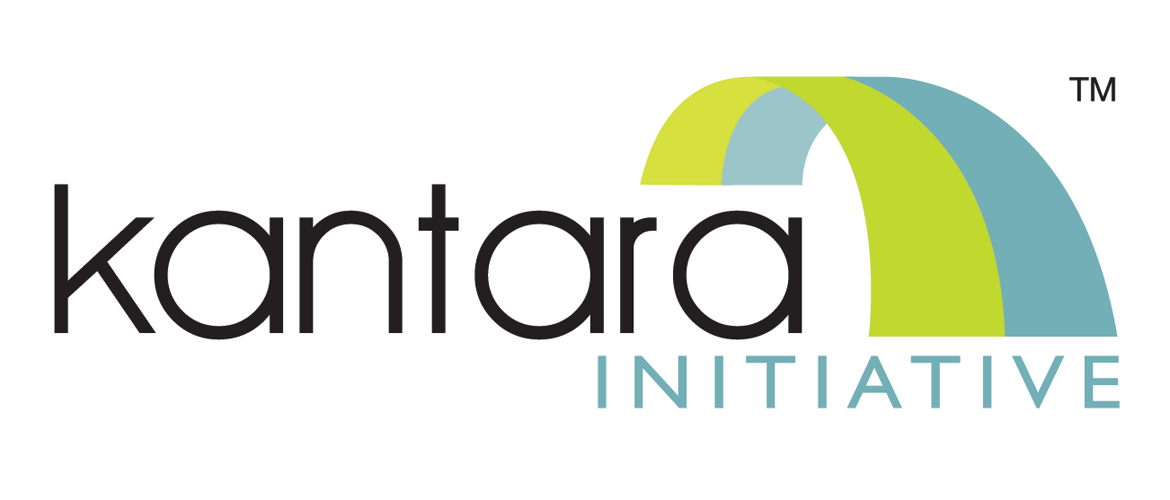Our 2023 #DEIA survey is now open! Click here to participate!
In August, Kantara Executive Director Kay Chopard spoke with Oscar Santolalla on Let’s Talk About Digital Identity, a Ubisecure-produced podcast. Chopard and Santolalla discussed a wide range of topics, including Chopard’s vision for Kantara and the digital security world, her role in supporting diversity and inclusion, and other topics. Before listening to the full podcast, we invite you to read highlights from Chopard’s episode below:
Oscar: What attracted you to digital identity?
Kay: What I find intriguing about digital identity is that it’s one of the most rapidly advancing technologies. It’s becoming more and more clear that digital identity impacts every industry. Identity is going to be one of the most critical issues going forward for the world. With that comes the opportunity to help form policy that makes a difference in the lives of individual people. Digital identity requires a balance of privacy, privacy of rights, privacy of data and security, as well as enabling business and people to take control and be able to do a variety of things.
Oscar: What is the current focus of Kantara? What about future projects in the organization?
Kay: The mission of Kantara is to improve the use of identity and personal data through trustworthy innovation, standardization, and good practice. That’s an important mission on which Kantara will remain focused. I also want to elevate all the good work that Kantara already does, because it hasn’t always been clear what our message is. I think that our workgroups and assurance program are stellar programs, however I have heard that in some ways they’re almost our best kept secret. So, I really hope to elevate our profile to make sure that people are aware of what we have to offer and of the expertise that we have.
Regarding the future, Kantara issued a report and we’re starting a workgroup that is going to focus specifically on mobile driver’s licensing. We’re working towards standards for that, because while it can do good things, it can also be abused. As we see increased usage of this type of digital identity, Kantara will look at what standards we can put in place to insure that people are using the technology correctly and their privacy rights are protected.
Oscar: You do a lot of work with “Women in Identity,” and are a vocal supporter of diversity and inclusion in the workplace. Tell us about this passion.
Kay: I’m a US Ambassador for Women in Identity, an organization focused on diversity across the board. We’re made up of people who genuinely believe in the importance of diversity in the digital identity space. I think that one of the weaker areas is diverse representation in the standards work groups. One of the things that I’ve learned, and the organization pushes is that diversity and inclusion are not checklists, and this isn’t something that you do a couple things and it’ll all be fixed. It’s not. And some of that is the culture that impacts everyone – men, women, the whole nine yards.
I think one of the things that Kantara does well is trying to look at the future state. We try to focus on what’s coming down the road and how to address it. Kantara aims to get ahead of the curve, which is not always an easy thing.
Oscar: What would you say is today’s biggest challenges that digital identity is facing?
Kay: Protecting privacy and what that looks like in digital identity continues to be a big challenge. I think the pandemic only highlighted that more. There are different ideas, thoughts, and approaches to how we protect the privacy of individuals and their digital identity. Not only do we ask, “how do we protect,” but also “how do we give people some control over the data that they’re sharing.”
The pandemic has highlighted how marginalised populations struggle with having digital identity. In some countries with disadvantaged populations, which tend to be more diverse, they don’t have access to a digital identity which cuts them out of a variety of things that they can’t access and can’t use as a result. The important thing to recognize is that what we do impacts real people, and it can’t be that digital identity is for the “haves” and not for the “have nots.” We have an opportunity to do better and help people who need it.
Oscar: Can you share with those who are listening today, especially business leaders and business-minded people, what is one actionable idea that they should write on their agendas today?
Kay: In many ways, what you do should start with yourself. There’s a lot of things to be learned. Some of this is completed just by making observations and paying attention in ways that you hadn’t before. The more that you can educate yourself, the more you can apply what you learn to how business gets done in your organization. I challenge the business leaders to write down “listen more” on their agendas. That means real, intentional, and deliberate listening. It’s not a huge ask, but it can go a long way.
About Ubisecure:
Ubisecure is the No. 1 Customer Identity and Access Management (CIAM) provider in the Nordics, and a leading provider of Identity as a Service (IDaaS) solutions throughout Europe. Ubisecure helps enterprises securely and effectively manage digital identities and enhance user experiences. The have a commitment to identity standards in the identity management ecosystem. More information about Ubisecure is available here.
About the Kantara Initiative:
Kantara Initiative is the Global Trust Framework and Specification ‘commons’ whose mission is to grow and fulfill the market for trustworthy use of identity and personal data. Kantara provides real-world innovation through its development of specifications, applied R&D and conformity assessment programs for the digital identity and personal data ecosystems. More information about the Kantara Initiative is available here.
Follow Kantara Initiative on Twitter — @KantaraNews

